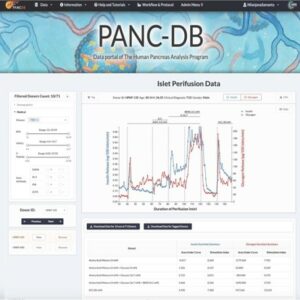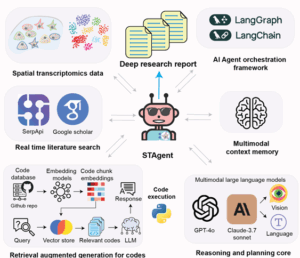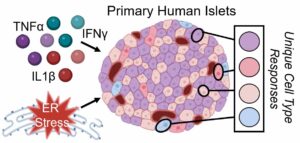The HIRN 2025 Virtual Annual Investigator Meeting was held virtually from December 2 – 4, 2025.
Author: Layla Rouse, MS
Associate Members (December 1, 2025)
In a commitment to advance HIRN’s mission, the selection process was guided by the following: prioritizing early-career investigators, proportionately augmenting membership across consortia, achieving synergy with consortium goals, and strengthening partner program relationships. In addition, qualifying grants with at least one year of remaining funding were prioritized, to allow time for meaningful participation in the consortia.
- Juan Alvarez, PhD, University of Pennsylvania, Consortium on Modeling Autoimmune Diabetes (CMAD)
- Rafael Arrojo e Drigo, PhD, Vanderbilt University, Human Pancreas Analysis Consortium (HPAC)
- Richard Benninger, PhD, University of Colorado, Consortium on Beta Cell Death & Survival (CBDS)
- Erica Cai, PhD, Indiana Biosciences Research Institute, Consortium on Modeling Autoimmune Diabetes (CMAD)
- Katie Coate, PhD, Vanderbilt University, Consortium on Beta Cell Death & Survival (CBDS)
- Dario De Jesus, PhD, University of Chicago, Consortium on Beta Cell Death & Survival (CBDS)
- Sangeeta Dhawan, PhD, City of Hope, Consortium on Beta Cell Death & Survival (CBDS)
- Nikki Farnsworth, PhD, Colorado School of Mines, Human Pancreas Analysis Consortium (HPAC)
- Julia Panzer, PhD, City of Hope, Human Pancreas Analysis Consortium (HPAC)
- Alberto Pugliese, MD, City of Hope, Consortium on Modeling Autoimmune Diabetes (CMAD)
- Sarah Richardson, PhD, University of Exeter, Pancreas Knowledgebase Program (PanKbase)
- Melanie Shapiro, PhD, City of Hope, Consortium on Modeling Autoimmune Diabetes (CMAD)
- Farooq Syed, PhD, City of Hope, Consortium on Beta Cell Death & Survival (CBDS)
- Peter Thompson, PhD, University of Manitoba, Consortium on Modeling Autoimmune Diabetes (CMAD)
HIRN: Data Scholars LINK Initiative
Congratulations to Dr. Matthew Ishahak and Dr. Liu Wang on their selection as HIRN Data Scholars Leveraging Multi-Modal Human Islet Research Network Knowledge (LINK) Award Recipients. This recognition highlights their exceptional contributions to advancing multi-modal human islet research and reflects the innovative spirit at the heart of the HIRN LINK initiative.
|
Matthew Ishahak, PhD, Washington University in St. Louis Dr. Ishahak received his PhD in Biomedical Engineering from the University of Miami and is currently a Postdoctoral Fellow at Washington University School of Medicine in St. Louis. His research focuses on developing in vitro models of human diseases using engineered organoids and applying state-of-the-art sequencing technologies to investigate mechanisms of disease progression. |
Liu Wang, PhD,  Mayo Clinic in Arizona Mayo Clinic in Arizona
Dr. Wang is a Senior Research Fellow in the Department of Physiology and Biomedical Engineering at Mayo Clinic in Arizona. His research focuses on creating novel models to study diabetes and metabolism and to identify therapeutic targets in metabolic diseases. Specifically, Dr. Wang studies the fundamental transcriptional and epigenetic dysregulation of beta cells that drives the pathogenesis of diabetes. |
|
|
Project: “Inferring and Perturbing Gene Regulatory Networks During Diabetes Progression” Summary: Dr. Ishahak will be joining the Pancreas Knowledgebase Program (PanKbase). |
Project: “Multi-omics Integrative Analyses of Human Islets in Type 1 Diabetes” Summary: Dr. Wang will be joining the Consortium on Beta Cell Death and Survival (CBDS). |
Start Date: October 1, 2025
New Awards from RFA-DK-23-007: HIRN Consortium on Beta Cell Death and Survival (CBDS)
Six new awards were announced for the HIRN Consortium on Beta Cell Death and Survival (CBDS) (RFA-DK-23-007):
- Decoding the Cell-specific Impact of Epigenomic and Alternative Splicing Regulation during T1D Progression (U01 DK143498)
Shuibing Chen*, PhD, Weill Cornel Medical Medicine
Stephen Parker, PhD, University of Michigan - The Role of Granular Acidification in the Pathogenesis of Type 1 Diabetes (U01 DK143495)
Thomas Delong*, PhD, University of Colorado Anschutz - Interferon Signaling in the T1D Islet Microenvironment (U01 DK127786)
Raghu G Mirmira*, MD, PhD, University of Chicago
Carmella Evans-Molina, MD, PhD, Indiana University School of Medicine
Ernesto Satoshi Nakayasu, PhD, Pacific Northwest National Laboratory - Driving next generation UPR inhibitory kinase inhibitors for T1D (U01 DK143500)
Feroz Papa*, MD, PhD, University of California, San Francisco
Dustin Maly, PhD, University of Washington - Role of Pancreatic Elastase in Beta Cell Health, Autoimmunity and Type 1 Diabetes (U01 DK143494)
Scott Oakes*, MD, University of Chicago
Rohit Kulkarni, MD, PHD, Joslin Diabetes Center
Mark Anderson, MD, PhD, University of California, San Francisco - Beta Cell Death in Early Type 1 Diabetes Caused by Innate Immune Response to Inefficient RNA Editing (U01 DK143477)
Klaus Kaestner*, PhD, University of Pennsylvania
* Denotes Contact PI
HIRN Associate Membership
The Human Islet Research Network (HIRN) is now accepting applications for its Associate Membership Program, designed to welcome investigators with active, peer-reviewed funding who are conducting research aligned with HIRN’s mission to understand and restore islet function in type 1 diabetes. This program offers opportunities to collaborate with HIRN consortia, present research at annual meetings, and engage in interdisciplinary discussions that advance the field of islet biology and diabetes research.
Eligible applicants must be Principal Investigators on active grants that advance the mission of HIRN and committed to participating in HIRN activities, including meetings, consortium calls, and presentations. No additional funding is provided, but members gain access to a vibrant research network and professional development opportunities.
Key Dates
|
|
Posted Date: |
August 18, 2025 |
Please refer to the policy for details: HIRN. Policy. Associate Membership. v 2025 August 15 (2216 downloads )
Application Form: https://redcap.link/gh2hu56z
Questions? Contact the HIRN Enhancement Center at hirec@coh.org.
HIRN Webinar: PanKbase: A Centralized Knowledge Base of the Human Pancreas for Diabetes Research
Click HERE to view YouTube recording of the webinar.
Thursday, August 12, 2025 (1:00 pm Eastern/10:00 am Pacific)
|
Presentations by: Topics to be discussed:
|
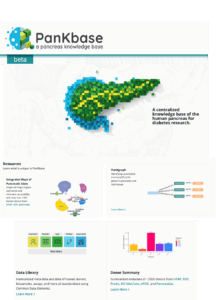 |
HIRN Webinar: Introduction to the New Islet Function Portal on PancDB
Click HERE to view YouTube recording of the webinar.
Thursday, June 12, 2025 (1:00 pm Eastern/10:00 am Pacific)
|
Presentation by: Topics discussed:
|
|
|
HIRN Webinar: STAgent: Autonomous Spatial Transcriptomics AI Agent for Pancreatic Research and Beyond
Click HERE to view YouTube recording of the webinar.
Thursday, July 17, 2025 (1:00 pm Eastern/10:00 am Pacific)
|
Presentation by: Marlie Maestas, PhD Candidate, Washington University School of Medicine Topics discussed:
|
|
|

HIRN Data Scholars Awards
A new funding initiative to support the use of existing HIRN datasets and resources to explore unique and innovative hypotheses designed to accelerate breakthroughs and advances in type 1 diabetes (T1D) research.
Learn more at: https://hirnetwork.org/datascholars2025
Please refer to the RFP for details: HIRN RFP Data Scholars Initiative (20037 downloads )
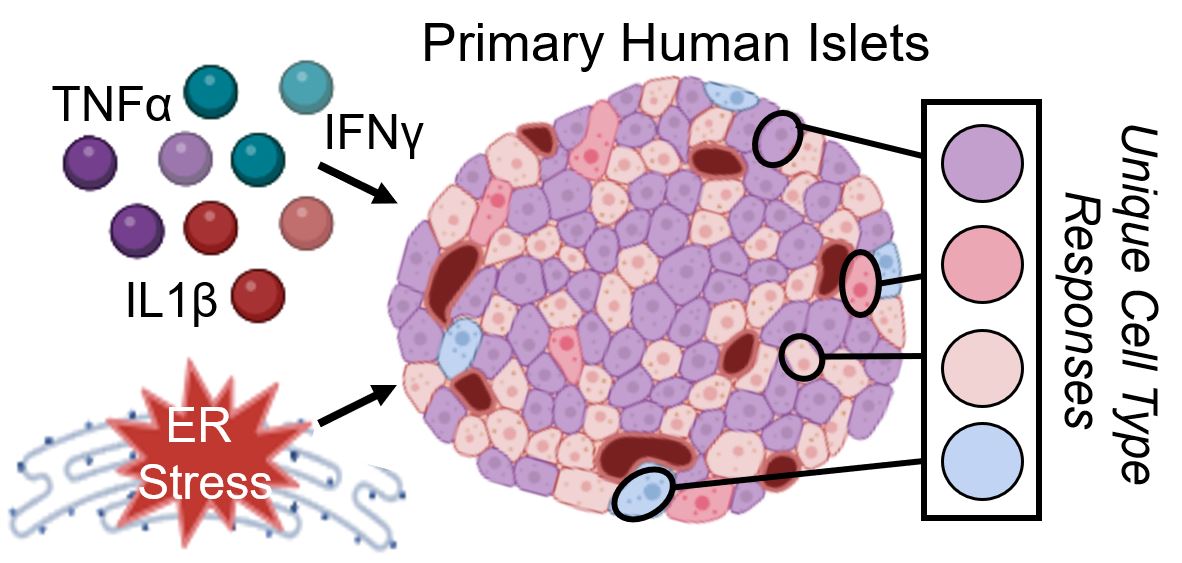
HIRN Webinar: Identification of Unique Cell Type Responses in Pancreatic Islets to Stress
Click HERE to view YouTube recording of the webinar.
Thursday, March 27, 2025 (1:00 pm Eastern / 10:00 am Pacific)
|
Presentation by: Marlie Maestas, PhD Candidate, Washington University School of Medicine Topics discussed:
|
|
|

